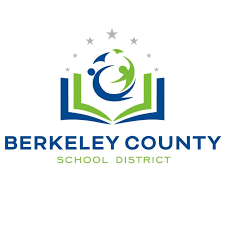
The Freedom From Religion Foundation is demanding that the Berkeley County School Board in South Carolina prevent members of the audience from interrupting its meetings to push Christianity by reciting the Lord’s Prayer during the moment of silence.
The state/church watchdog has been alerted that the board is currently doing nothing to stop members of the audience from hijacking a moment of silence to chant aloud the Lord’s Prayer. The disruptive prayers for the last three board meetings have been led by former school board member Ann Conder in order to “invite God into the boardroom.”
At the most recent meeting, a woman commented, “Oh, no, no, a moment of silence. No, show some respect for non-Christians here” to protest Conder’s inappropriate disruption of the meeting. Conder was allowed to continue praying, but a security guard approached the woman protesting the inappropriate prayer, grabbed her arm and told her to leave. She later told media, “As long as she keeps getting away with it, right, it’ll just continue. It’s disrespectful for non-Christians who are there, and it’s a moment of silence. It’s pretty simple.”
FFRF understands that Conder intends to continue disrupting the moment of silence until the board agrees to change its policies and impose Christian prayer upon staff, students and community members in violation of the Establishment Clause.
South Carolina’s Public Invocation Act, passed in 2016, states that prayer at public meetings may not “advance any one faith or belief, or coerce participation by observers.” After the law was adopted, according to WCSC News, the board accordingly and appropriately replaced a prayer with a moment of silence. A portion of board policy does address public participation: “All regular board meetings are public meetings; however, a public meeting is not an open forum. Public participation is limited to the concerns of citizens section of the board meeting only. The board vests in its chairman or other presiding officer the authority to terminate the remarks of any individual when he/she does not adhere to the procedures established above.”
FFRF is asking the board chair to take immediate action: “The board has chosen to host a moment of silence to allow those who wish to pray prior to meetings to do so without violating the constitutional rights of its students and community members by imposing prayer on everyone,” FFRF Staff Attorney Chris Line writes. “The board should honor its decision and not allow members of the public to interrupt this moment.”
If Condor attempts to disrupt the moment of silence with Christian prayer, it is incumbent to have her removed from the meeting instead of removing or punishing those attempting to stop this disruption. If the board chooses to allow a person to speak during the moment of silence, it is also required to allow anyone to speak during that time. The board’s removal of the other speaker indicates that the board is in control of the moment of silence and does not intend for it to be a public forum for general public comment. If this is truly the case, all speakers must be treated equally and shut down when they interrupt the moment of silence.
The board’s action amounts to viewpoint discrimination under the First Amendment, since it treated expression differently based on the viewpoint expressed, FFRF observes. Viewpoint discrimination is a blatant violation of the Free Speech Clause. If the board wants to allow speech during the moment of silence, it cannot discriminate among speakers.
Allowing Conder to continue delivering prayer at school board meetings is no different than if the board were inviting her to deliver the prayers and constitutes school-sponsored prayer that violates the Constitution. It is beyond the scope of a public school board to conduct or allow others to conduct prayer as part of its meetings.
Students and parents have the right — and often reason — to participate in school board meetings. It is coercive, insensitive and intimidating to force nonreligious citizens to choose between making a public showing of their nonbelief by refusing to participate in the prayer or else display deference toward a religious sentiment in which they do not believe. Those attending board meetings are free to pray privately or to worship on their own time in their own way, but they cannot interrupt the meeting in order to impose prayers upon everyone. The board must take action to stop these unsanctioned prayer rather than lending its power and prestige to religion and implicitly coercing attendees into participating in religious exercise, which alienates the 37 percent of Americans who are non-Christian, including the 23 percent of Berkeley County residents who identify as religiously unaffiliated.
“The audience interference with the moment of silence and the board’s inaction is deeply disturbing,” says FFRF Co-President Annie Laurie Gaylor. “The school board needs to uphold the First Amendment.”
The Freedom From Religion Foundation is a national nonprofit organization with more than 40,000 members and several chapters across the country, including more than 300 members in South Carolina. FFRF works to protect the constitutional separation between state and church and to educate about nontheism.

